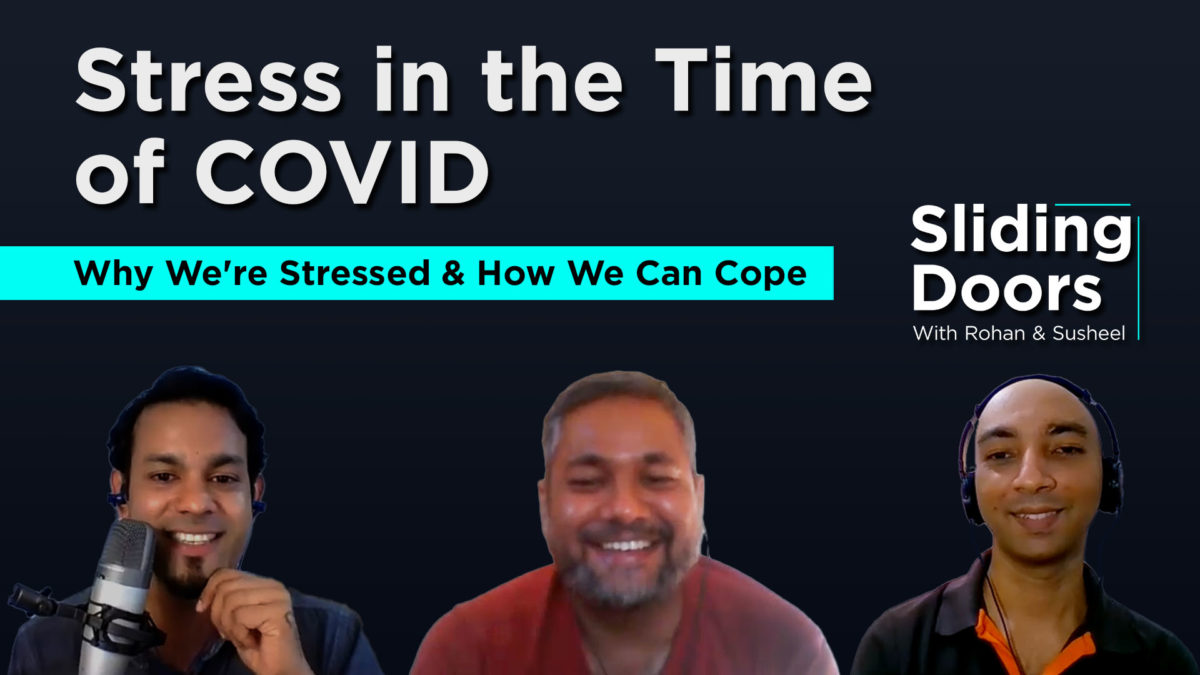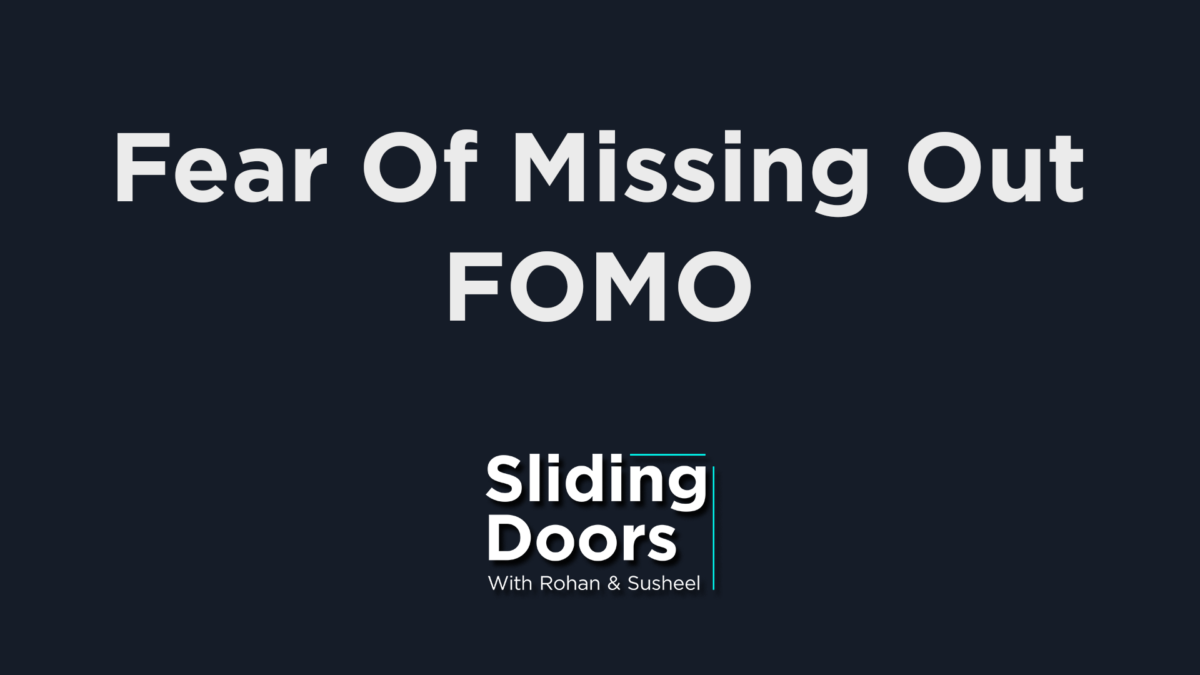
The pandemic is stripping us of many of our coping strategies for stress. We’re in lockdown (so can’t meet our friends for support), we’re getting crazier deadlines (so can never really unwind), and there’s a virus spreading in our community (our lives are potentially in danger). But do we need to be spiralling out of control? In this episode, Susheel and Rohan explore these issues and then invite neuropsychologist Anirudh George to share his take on them. Plus, they explore the role of ‘middle-class privilege’ (https://projecthumanities.asu.edu/content/middle-upper-class-privilege-checklist) in shaping the way we respond to crises.
Introducing Our Guest — Anirudh George
Anirudh George is a neuropsychologist working at the internationally-renowned Christian Medical College (CMC) in Vellore, Tamil Nadu. He finished an undergraduate degree in psychology at St. Xavier’s College (Mumbai), and a postgraduate degree at the National Institute of Mental Health and Neuro-Sciences (NIMHANS, Bengaluru). He’s passionate about studying the theory of neural networks and enjoys clinical therapy, too. And he joins us halfway through the episode (at 34:21) to offer a psychologist’s perspective on ‘COVID-19 anxiety.’
Timestamps:
- 00:00 — Introduction to the episode.
- 01:14 — The horror of the migrant crisis (Harsh conditions, no government help) and its effect on Susheel.
- 03:30 — Reconciling two world views — one where COVID isn’t a big deal, and one where it’s a pandemic!
- 05:00 — Being stressed but not realizing it.
- 06:55 — Things that are stressing people out: Keeping your job/getting paid, economy dipping, etc.
- 08:00 — The importance of calming down, because we can’t control everything.
- 09:47 — The effect of friends and relatives falling ill. The ICMR’s (Indian Council of Medical Research) mistakes. Susheel asks, “What have they been smoking?”
- 11:15 — COVID has become politicized. The numbers are larger than what has been recorded.
- 11:28 — Why COVID numbers are being under-reported: (1) Relatives choose not to record deaths as COVID deaths, (2) Many deaths already go unreported, and relatives don’t get a death certificate.
- 14:05 — How the news stresses us out. The challenge of being aware of what’s happening but not getting overwhelmed. Going on a social media diet. The wisdom of having someone else update you on key events, to cut out the emotional component of watching the news.
- 17:07 — The dangers of being constantly stressed out, especially when you don’t know you’re stressed. How to spot that you’re stressed by using friends’ behaviour as a cue.
- 20:50 — Middle-class privilege & COVID-19: Should you carry on with your life (a luxury the middle-class has)? Or stop and help people in need during this crisis? A case study about Susheel’s friend’s social outreach.
- 27:42 — Hope in the middle of this crisis: Can we can learn from our experiences? Are we changing for the better?
- 29:20 — Why working from home isn’t necessarily better than going to the office. IT folk find it more stressful.
- 32:52 — Susheel’s plans for ‘lockdown’ work over the next few months.
- 34:21 — Introduction to our guest: Anirudh George (Neuropsychologist) – a.k.a ‘Chandu.’
- 35:15 — Why Chandu hasn’t been very anxious about COVID-19. The role of his work in helping him cope with the implications of the virus.
- 39:40 — How to cope: (1) Get in touch with your emotions. It’s a skill you can develop. (2) Recognize that bad things do happen and appreciate the ordinary things in life.
- 42:15 — A psychologist’s take on ‘middle-class privilege’ and the luxury of social distancing. How do you ‘socially distance’ when you’re stuck in a slum?
- 42:58 — Stopping your life to help others does have its costs. And by doing something to help, you will have to give up some convenience. These types of small sacrifices are how we can use our ‘middle-class privilege’ to help people who don’t have it.
- 53:40 — How your work situation can limit or empower you to help people in need.
- 57:33 — Do privilege and guilt go hand in hand? Should you be ashamed of your opportunities.
- 1:01:14 — Chandu’s advice (as a psychologist) about coping with COVID-19 stress. The power of taking small steps.
- 1:06:22 — Reflections on the conversation with Chandu.
Links:
The photos that moved Chandu:
Articles that made him think about class and social distancing:
- https://www.theguardian.com/commentisfree/2020/apr/05/whether-in-the-uk-or-the-developing-world-were-not-all-in-coronavirus-together
- https://www.theguardian.com/global-development/2020/aug/03/we-have-abandoned-the-poor-slums-suffer-as-covid-19-exposes-indias-social-divide
Watch On YouTube
Connect with Susheel
- Follow him at @Susheel_c (Twitter) and @Susheel02 (Instagram)
- Consult with him at ColoursAlive.com
Connect with Rohan
- Consult with him: [email protected]
- Follow him: @RohanTriesThinking (Instagram)


